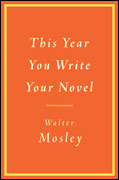AWP Reportage: The Creative Writing Tenure Track
(Second in a series of posts detailing sessions from last week’s AWP conference in Atlanta. Click here for the previous post.)
Last Friday morning I awakened in time to get breakfast and make it over to a 9AM session on “Getting the Job and Keeping It: The Creative Writing Tenure Track.” Once upon a time I thought I’d be on said track by now, and since I haven’t altogether abandoned the idea, I thought the session would be helpful.
And it was. Moderated by Katherine Coles, a poet on the faculty of the University of Utah, it also included Christian Teresi, Associate Director of Membership Services (and coordinator of Career Services) at AWP; Pablo Medina, who teaches writing and literature at New School University in Manhattan as well as for the Warren Wilson MFA Program for Writers; and Margot Singer, an assistant professor of English at Denison University in Ohio (who, we quickly learned, beat the conventional wisdom by winning a tenure-track job even before she had a book published or even under contract).
It was an extremely informative session. Here are some gleanings:
1) If you’re already an AWP member, you have access to a lot of helpful information for the job search online. First, log on through “eLink.” Go to the “AWP JobList/Career Services” section. Read through the archived JobList articles later. Read through the job listings later. Right now, you want to download AWP’s “Career Services Guidelines.” Even if you choose not to have AWP manage your dossier (you may already be entitled to similar services elsewhere, as I am), you’ll want to read the information about the components of a dossier; etiquette for seeking letters of recommendation; and tips on creating an effective application, c.v., and/or resumé. Teresi had helpfully brought along a number of packets containing the printed version of these materials, and I was glad to snag one.
2) Coles repeated some pointers one would think job seekers for posts teaching writing wouldn’t need. Be neat. Be sure your cover letter and your c.v. don’t contain grammatical errors or typos. Don’t be “flip.” Be straightforward and speak to your strengths, explaining what you would bring to the particular program and to the job. (If the job involves a lot of undergraduate teaching, for example, speak about that, and your qualifications.) Coles and the others pointed out that because these jobs are so competitive (it’s possible to get hundreds of applicants for a single post), the unfortunate truth is that the easier you make it for your application to be tossed aside, the more likely it is that that’s exactly what will happen.
3) Medina noted that he always asks recommendees if there’s anything in particular they’d like him to discuss in his reference letters. And he reminded us to always, always waive our rights to see these letters, thus affirming their confidential nature (Coles noted that she always shows her recommendees the letters she’s written for them anyway. But the panelists agreed that not signing the waiver signals something negative to search committees.) Coles added that she has her students remind her to update their letters every year, to keep the letters “fresh” for the new search(es) that may be needed.
4) Noting that the goal of the first step (the application packages) is getting to the point of an interview, Singer emphasized the importance of conducting a mock interview before the real thing happens. The panelists instantly agreed. There was quite a bit of discussion about interviews. Coles spoke about items you might not think about ahead of time, including the usefulness of dressing as if you were meeting everyone in person even if your interview with the search committee is being held by phone (you’ll simply sound more energetic and professional wearing interview attire than wearing your pajamas).
Overall, the panelists seemed to emphasize the importance of presenting a good, professional first impression. Coles recounted stories about job candidates she’d worked with whose cover letters had clearly worked against them. These were talented writers and wonderful people, she said, who simply kept search committees at a distance (they weren’t receiving any interview requests) by issuing strong aesthetic or pedagogical opinions in their cover letters. But don’t you want me to be myself, such writers have asked her. Not now, she replies. Now is the time to be your “best self,” the hire-able self, the self who works well with others, even others who may have different opinions and experiences. Later, once you’re hired and established on your new campus and socializing with your colleagues, is the time to get into debates about the primacy of formalist poetry, or the efficacy of the workshop model for undergraduates.
I have to confess that I found this thread of the discussion a little disheartening (and come to think of it, the session focused almost exclusively on “getting the job” rather than “keeping it”). But I think it was realistic. Certainly, everything I heard in this session was worth hearing, whether one ends up, ultimately, “on the market” for a tenure-track job in creative writing or not. Because it’s not just as teachers of creative writing that we need to present our “best selves.”
